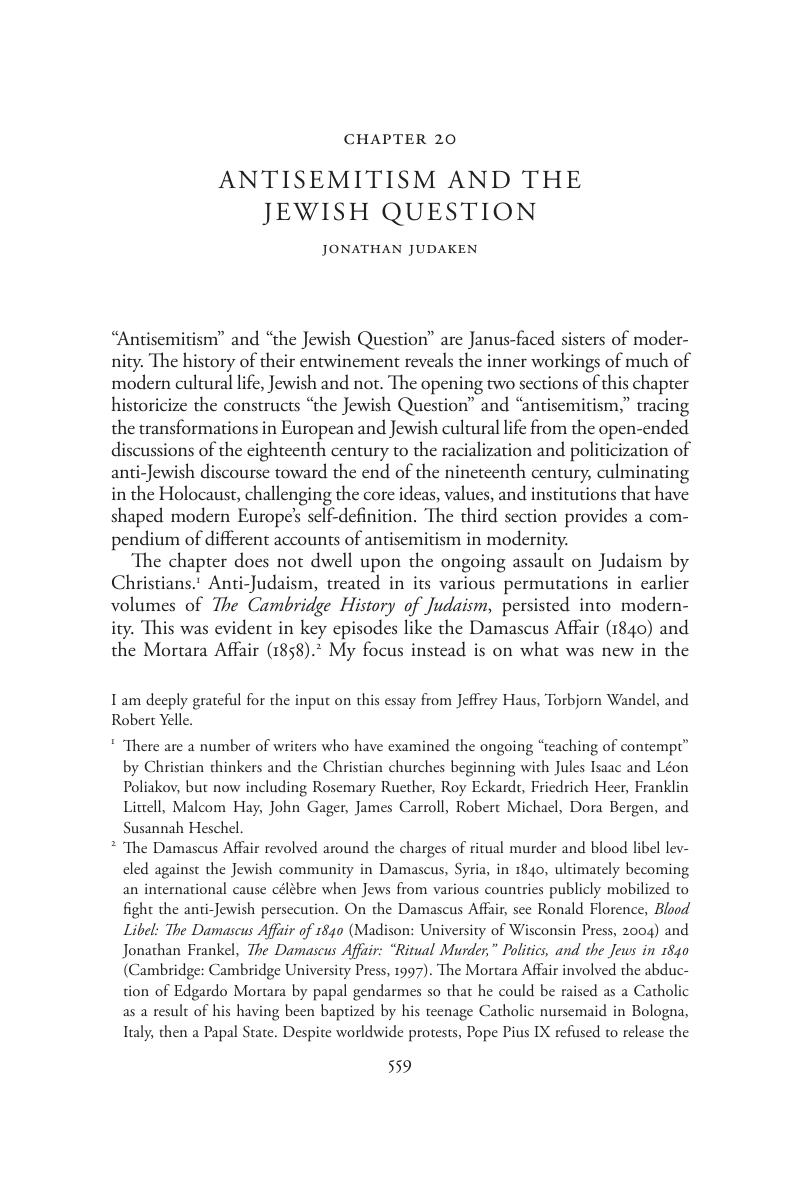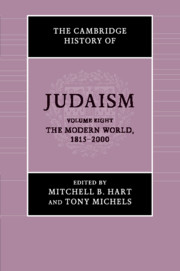Book contents
- The Cambridge History of JudaismVolume Eight
- The Cambridge History of Judaism
- The Cambridge History of Judaism
- Copyright page
- Contents
- Acknowledgments
- Introduction
- Part I History and Geography
- Part II Emancipation:
- Chapter 10 Jews and the Modern State
- Chapter 11 Assimilation and Assimilationism
- Chapter 12 Liberal Judaisms
- Chapter 13 The New Jewish Politics
- Chapter 14 Jews and the Left
- Chapter 15 Jews and Commerce
- Chapter 16 Jews and Social Class
- Chapter 17 Education and the Politics of Jewish Integration
- Chapter 18 Philanthropy, Diplomacy, and Jewish Internationalism
- Chapter 19 Jews and Modern European Imperialism
- Chapter 20 Antisemitism and the Jewish Question
- Chapter 21 Generation, Degeneration, Regeneration
- Chapter 22 Zionism and its Critics
- Chapter 23 The Holocaust and its Aftermath
- Part III Jewish Cultures, National and Transnational
- Part IV Jews in the Modern World
- Index
- References
Chapter 20 - Antisemitism and the Jewish Question
from Part II - Emancipation:
Published online by Cambridge University Press: 21 September 2017
- The Cambridge History of JudaismVolume Eight
- The Cambridge History of Judaism
- The Cambridge History of Judaism
- Copyright page
- Contents
- Acknowledgments
- Introduction
- Part I History and Geography
- Part II Emancipation:
- Chapter 10 Jews and the Modern State
- Chapter 11 Assimilation and Assimilationism
- Chapter 12 Liberal Judaisms
- Chapter 13 The New Jewish Politics
- Chapter 14 Jews and the Left
- Chapter 15 Jews and Commerce
- Chapter 16 Jews and Social Class
- Chapter 17 Education and the Politics of Jewish Integration
- Chapter 18 Philanthropy, Diplomacy, and Jewish Internationalism
- Chapter 19 Jews and Modern European Imperialism
- Chapter 20 Antisemitism and the Jewish Question
- Chapter 21 Generation, Degeneration, Regeneration
- Chapter 22 Zionism and its Critics
- Chapter 23 The Holocaust and its Aftermath
- Part III Jewish Cultures, National and Transnational
- Part IV Jews in the Modern World
- Index
- References
Summary

- Type
- Chapter
- Information
- The Cambridge History of Judaism , pp. 529 - 558Publisher: Cambridge University PressPrint publication year: 2017

